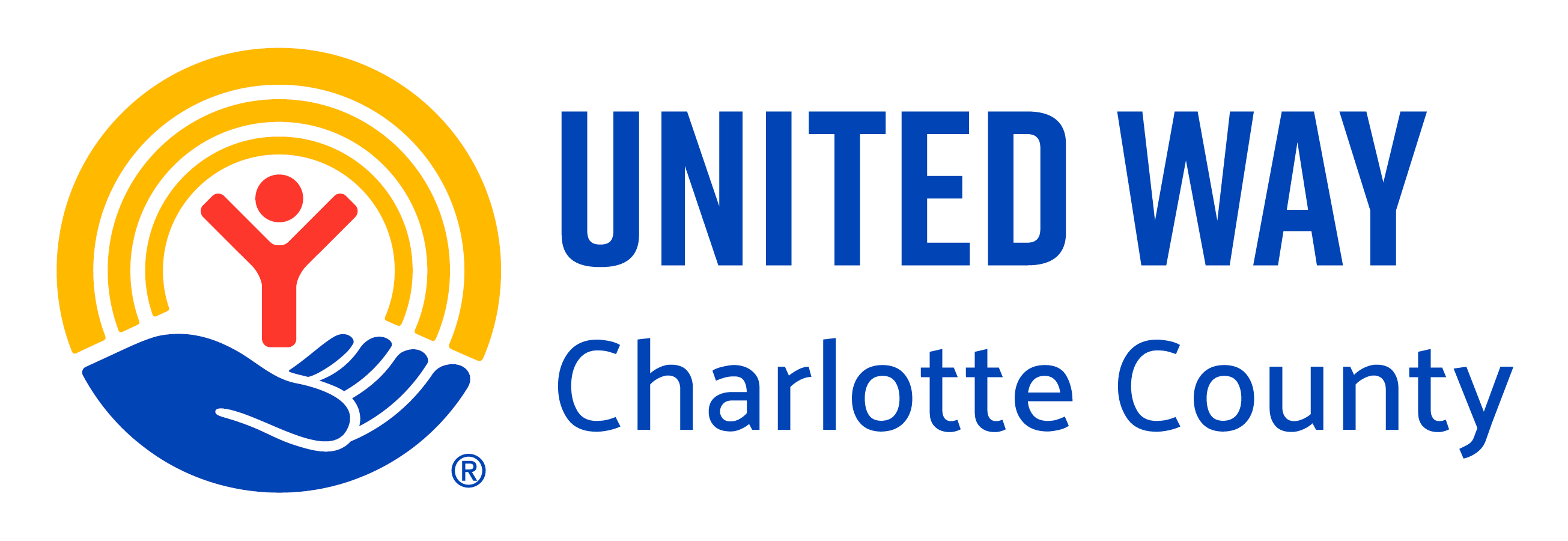Pandemic Impact: 8,395 more households financially insecure
by Angie Matthiessen, Executive Director – United Way of Charlotte County
Have you ever seen a gloomy, gray and cloudy image in your car’s rearview mirror, yet in front of you, clear blue skies fill your forward-facing view? As you look behind, the image isn’t pretty, and you are grateful and eager to move forward towards the warmth of the sunshine.
This is my hope for ALICE in Charlotte County, following the COVID-19 pandemic and, more recently, Hurricane Ian.
According to a new report from United Way of Charlotte County and its research partner United For ALICE, 3.9 million households in Florida had income below the ALICE Threshold of Financial Survival in 2021. In Charlotte County, over 38,000 households fell into that same bucket of financial insecurity.
That calculation includes the 9,429 households in poverty as well as another 28,585 families defined as ALICE (Asset Limited, Income Constrained, Employed), earning above the Federal Poverty Level but less than what’s needed to survive in the modern economy. ALICE families have been overlooked and undercounted by traditional poverty measures. ALICE is the nation’s childcare workers, home health aides and cashiers heralded during the pandemic – those working low-wage jobs, with little or no savings and just one emergency away from poverty and/or homelessness.
Florida ranked 44th in financial hardship among all 50 states, with one of the nation’s highest percentages of households struggling to make ends meet in 2021.
In Charlotte and surrounding counties, the numbers show that much of this struggle is right here in Southwest Florida. In Charlotte County, 43% of households fell under the ALICE threshold, up 4% from 2019. Sarasota County had a total of 38%; Lee County sat at 42%; DeSoto County fared the worst in our area with 65% of households struggling.
Even with the variety of temporary pandemic supports available, in 2021, a family of four with two full time workers earning salaries as a retail salesperson and a cashier – two of the most common occupations in Florida – fell short of affording the family budget by $8,959.
“A positive change during the pandemic was that tax credits, stimulus payments and rental assistance were available for ALICE households and provided strong relief,” said Stephanie Hoopes, Ph.D., United For ALICE National Director. “However, as some of these supports come to an end, growing food insufficiency and other indicators reveal continued stress. Ignoring these warning signs places ALICE, our economy and the well-being of our communities are great risk.”
While job disruptions and inflation delivered significant financial pain, a combination of pandemic supports and rising wages did help to blunt what could have been a deeper financial crisis, the new report finds. However, as some benefits are peeled back, and inflation persists, signs of greater financial stress are on the horizon.
No one in our community should struggle to meet their basic needs. At United Way of Charlotte County, our mission is to mobilize the power of our community to break the cycle of poverty. By coming together as a community, we have an opportunity to push the gray clouds aside to better ensure that all families in Charlotte County are supported and thriving in the days ahead.
If you would like to join us in moving forward through mobilizing local resources, you can donate online at unitedwayccfl.org. If you would like to join us as we mobilize people, you can sign up for a volunteer opportunity at unitedwayccfl.org/volunteer.
To read the report and access online, interactive dashboards that provide data on financial hardship at the state, county and local level, visit United4ALICE.org/ALICECrosscurrents.
For more information about United Way of Charlotte County’s mission: Mobilizing the power of our community to break the cycle of poverty, please contact Angie Matthiessen, Executive Director. She can be reached at director@unitedwayccfl.org.
